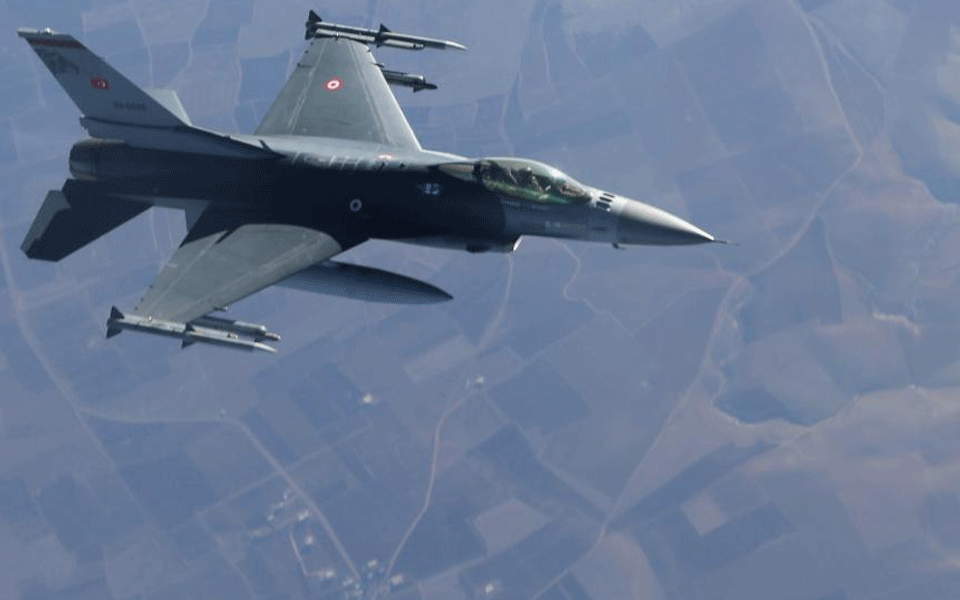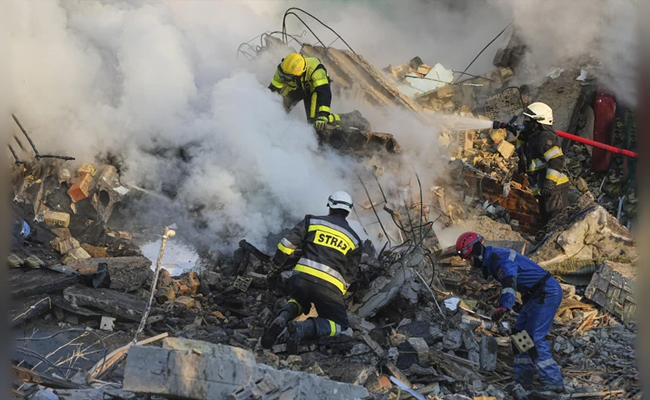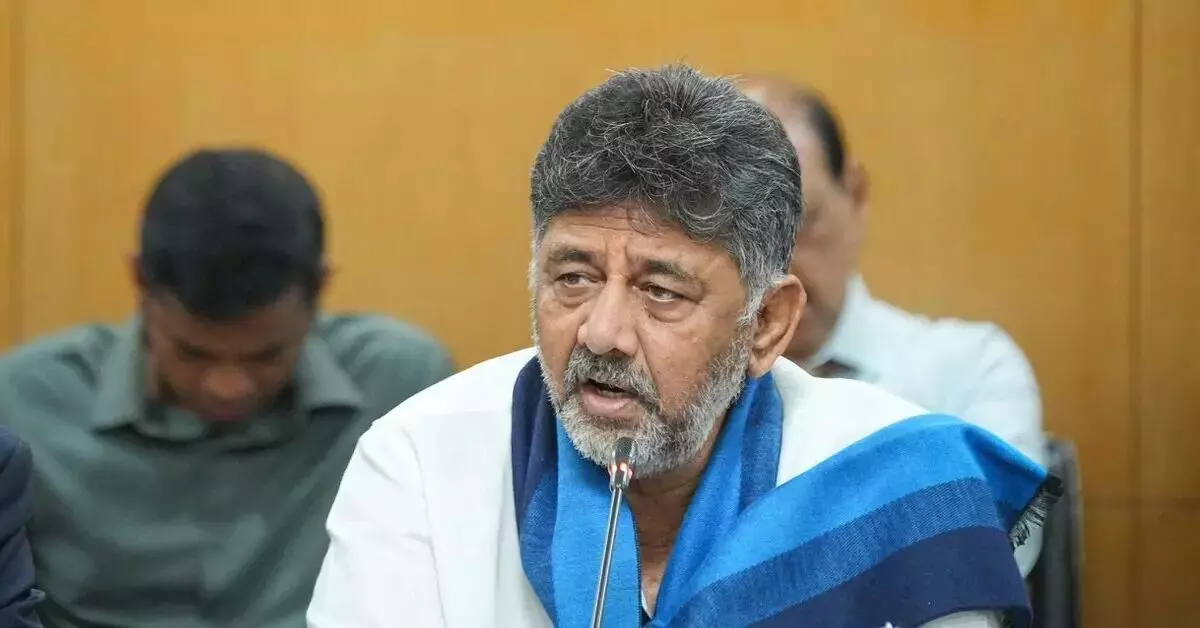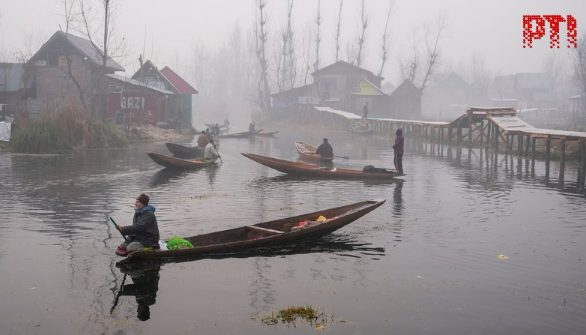Istanbul (AP): Turkey launched airstrikes over northern regions of Syria and Iraq, the Turkish Defence Ministry said on Sunday, targeting Kurdish groups that Ankara holds responsible for last week's bomb attack in Istanbul.
Warplanes attacked bases of the outlawed Kurdistan Workers' Party, or PKK, and the Syrian People's Protection Units, or YPG, the ministry said in a statement, which was accompanied by images of F-16 jets taking off and footage of a strike from an aerial drone.
There was no immediate comment from either group.
The ministry cited Turkey's right to self defense under Article 51 of the United Nations Charter in launching an operation it called Claw-Sword late Saturday night. It said it was targeting areas "used as a base by terrorists in their attacks on our country."
Turkey said it was seeking to prevent attacks, secure its southern border and "destroy terrorism at its source."
The airstrikes came after a bomb rocked a bustling avenue in the heart of Istanbul on November 13, killing six people and wounding over 80 others.
Turkish authorities blamed the attack on the PKK and its Syrian affiliate the YPG. The Kurdish militant groups have, however, have denied involvement.
Ankara and Washington both consider the PKK a terror group, but disagree on the status of the YPG. Under the banner of the Syrian Democratic Forces, the YPG has been allied with the US in the fight against the Islamic State group in Syria.
The PKK has fought an armed insurgency in Turkey since 1984. The conflict has killed tens of thousands of people since then.
Following the strikes, the Defence Ministry posted a photo of an F-16 fighter plane with the phrase, "Payback time! The scoundrels are being held to account for their treacherous attacks."
The DHA news agency reported that F-16s took off from airfields in Malatya and Diyarbakir in southern Turkey while drones were launched from Batman.
Defense Minister Hulusi Akar oversaw the airstrikes from an operations centre and congratulated pilots and ground staff.
"Our aim is to ensure the security of our 85 million citizens and our borders and to retaliate for any treacherous attack on our country," he said, according to a ministry statement.
Akar added: "Shelters, bunkers, caves, tunnels and warehouses belonging to terrorists were destroyed with great success. ... The so-called headquarters of the terrorist organization were also hit and destroyed with direct hits."
The airstrikes targeted Kobani, a strategic Kurdish-majority Syrian town near the Turkish border that Ankara had previously attempted to overtake in its plans to establish a "safe zone" along northern Syria.
Syrian Democratic Forces spokesperson Farhad Shami in a tweet added that two villages heavily populated with displaced people were under Turkish bombardment. He said the strikes had resulted in "deaths and injuries."
Local media reported that the northern Iraqi city of Sinjar was also targeted. Syrian opposition media reported that the Turkish airstrikes targeted Kurdish-led SDF positions.
The Britain-based Syrian Observatory for Human Rights, an opposition war monitor, reported that the strikes had also hit Syrian army positions and that at least 12 had been killed, including SDF and Syrian soldiers.
The observatory said about 25 airstrikes were carried out by Turkish warplanes on sites in the countryside of Aleppo, Raqqa and Hasakah.
In neighboring Iraq, the US Consulate General in Erbil said it is monitoring "credible open-source reports" of potential Turkish military action in northern Syria and northern Iraq in the coming days.
The Kurdish-led authority in northeast Syria said on Saturday that if Turkey attacks, then fighters in the area would have "the right to resist and defend our areas in a major way that will take the region into a long war."
Turkey has launched three major cross-border operations into Syria since 2016 and already controls some territories in the north. Earlier this year, Turkish President Recep Tayyip Erdogan threatened another operation in northern Syria.
Turkish forces launched a fresh ground and air operation, dubbed Claw-Lock, against the PKK in northern Iraq in April. (AP)
Let the Truth be known. If you read VB and like VB, please be a VB Supporter and Help us deliver the Truth to one and all.
Kyiv (AP): Eight people were killed and 27 wounded in a Russian missile strike on port infrastructure in Odesa, southern Ukraine, late on Friday, Ukraine's Emergency Service said on Saturday morning.
Some of the wounded were on a bus at the epicentre of the overnight strike, the service said in a Telegram post. Trucks caught fire in the parking lot, and cars were also damaged.
The port was struck with ballistic missiles, said Oleh Kiper, the head of the Odesa region.
ALSO READ: 'Have not received complaint yet': Delhi Police on assault by off-duty Air India Express pilot
Elsewhere, Ukrainian forces hit a Russian warship and other facilities with drones, Ukraine's General Staff said in a statement on Saturday.
The nighttime attack on Friday hit the Russian warship “Okhotnik,” according to the statement posted to the Telegram messaging app.
The ship was patrolling in the Caspian Sea near an oil and gas production platform. The extent of the damage is still being clarified, the statement added.
A drilling platform at the Filanovsky oil and gas field in the Caspian Sea was also hit. The facility is operated by Russian oil giant Lukoil. Ukrainian drones also struck a radar system in the Krasnosilske area of Crimea, which Russia illegally annexed from Ukraine in 2014.





